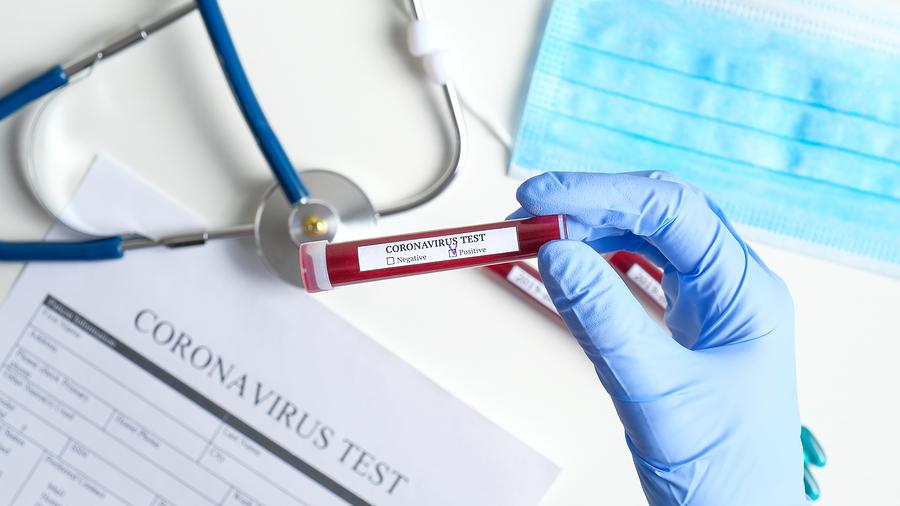Coronavirus: Chinese Students Worry About Home
February 13, 2020
As the coronavirus continues to spread, teachers and international students are expressing concern for family in China, as they also weigh the risks of returning home over March break.
The New York Times recently confirmed 1,113 deaths, with at least 44,653 reported cases in China. Over 200 cases outside of the country have also been diagnosed.
Betty Wang ’21, one of 27 Chinese students in the Middle and Upper Schools, canceled her trip home over March break.
“I do not want to die,” Wang said, whose family lives in Tianjin, three miles outside of Beijing. “I want to stay here where there is a low percentage chance of getting the virus.”
Co-Director of International Students Helen Du recently met with Chinese students to let them know that the School is supporting them. In addition to fears of contracting the coronavirus, Du says, students are also worried about not being able to return to the United States after going home.
“The Chinese students are trying their best to act as if everything is normal, but at the same time it’s understandable they feel scared and uncertain about the future,” Du said. “Since nobody is returning to China for the upcoming vacation, I thought to organize an activity for all of us, but that will depend upon student interest. More than anything, I just want students to know that the School is here to support them, however it can.”
James Wang ’23, whose grandfather is a doctor in Nanjing, China, is nervous about him being more prone to contracting the virus.
“I’m nervous for his health,” Wang said. “I am also shocked by the rate of infection and I worry about my family, who say it’s bad there with supplies running out. You can’t even buy face masks or hand sanitizer. My parents are staying inside my home as much as they can. Luckily, they have plenty of food leftover from the Chinese New Year.”
Even in the United States, where the virus is controlled and not widespread, hospitals and drugstores have limited supplies of face masks. However, health experts report that paper masks do not offer adequate protection against airborne particles. Washing your hands will keep you healthier than wearing a mask, medical professionals report.
Students, teachers, and administrators have been kind and supportive here, according to Wang, but he has noticed an uptick in racism outside of the community.
“When I take the train, I can see people trying to sit away from me,” Wang said. “It’s not a good feeling.”
A recent Washington Post article reported that educators are “seeking to prevent outbreaks of hysteria and racism” with the continued spread of the virus.
“Some schools have made missteps,” the article reads. “Officials at the University of California at Berkeley apologized last month after the campus health center shared a handout in which xenophobia was listed as a ‘normal reaction’ that some people might experience during the health crisis. The handout sparked widespread outrage.”
According to The Wall Street Journal, scientists believe that the virus could have originated from a seafood and animal market in Wuhan, China. Still, public health officials report that no definite proof exists for the cause. Researchers are still connecting the dots to explain how the virus transferred from animals.
The Centers for Disease Control and Prevention (CDC) report that much is unknown about the 2019-nCOV, the virus behind the outbreak, and current understanding is largely based on prior study of other strands.
“Person-to-person spread is thought to occur mainly via respiratory droplets produced when an infected person coughs or sneezes, similar to how influenza and other respiratory pathogens spread,” the CDC reports. “It’s currently unclear if a person can get 2019-nCoV by touching a surface or object that has the virus on it and then touching their own mouth, nose, or possibly their eyes.”
School Nurse Beth Escobar says that there is no need for elevated concern in Massachusetts, unless individuals have traveled to Wuhan, China, the epicenter of the outbreak. Frequent hand-washing is the most effective way to prevent infection, according to Escobar and the CDC.
“There are no vaccines to protect yourself against coronavirus, and there is no specific antiviral treatment for infection. Patients with the illness usually get better on their own, with the aid of symptom relief medications,” Escobar said. “In instances of severe cases, treatment should involve a plan to support vital organ functions.”
Kevin Wen ’20 is from Hubei province, the epicenter of the outbreak. Like other Chinese students here, he is worried about his family back home, but he remains thankful that his loved ones are healthy. He also plans on remaining in Boston for March break, and he doesn’t have plans to return to China until the virus is contained.
“I have many relatives in Hubei,” Wang said. “They have to wear facial masks and they mostly stay at home. They only go out to buy necessities like food. It’s all very confining. There’s not much to do.”
On January 26, Yale canceled the last day of its annual Model United Nations (MUN) conference due to a Chinese delegate testing positive for the flu at an area hospital. The CDC suggested that he also be tested for the coronavirus, which returned negative several days later. Director of Global Studies Kelly Neely, who chaperoned the School’s 14 students, said that Yale health officials made the decision based on what they called an “overabundance of caution.”
The South Florida Sun Sentinel reported that 38 students in the county, including from public and private schools, were told to stay home “because they may have been exposed to coronavirus” at the Yale conference.
In all matters with CDC-level health concerns, the School follows the guidance of Escobar, who is in contact with the institute’s representatives, according to Head of School Judith Guild. The CDC gives guidelines and sets the standard for care, Guild said, which the School follows.
“The student who was screened at Yale University was released from the care of the doctors and the testing indicated it was not the coronavirus,” Guild said. “Had the student not been released, we might have responded differently. In conclusion, the doctors determined it was the flu.”
Last week, the CDC issues a level four travel ban, restricting travel to China and ordering the departure of all non-emergency personnel.
In 2018, Alex Li’s ’20 parents began sponsoring a cultural and entrepreneurial trip to China at the beginning of the summer. Du, who leads the trip, said that the School has not yet canceled plans for this year’s cohort.
“We will continue to closely monitor the situation and let students know of any updates,” Du said.
Mandarin teacher Frances Fremont-Smith ’75 said that her husband, who is from China, has remained here since visiting over the Chinese New Year. He is unable to return home because of the travel ban, offering her some ease of mind.
“I had planned to go to China for the break to plan for next year’s Winterim, but I’ve had to cancel my trip,” Fremont-Smith said. “Most of my friends are teachers there, and all schools there are shut down until at least March 2. Teachers are having to offer instruction through online services.”
Guild is concerned for Chinese students who cannot travel home.
“It is hard being away from those whom you love, and now they have to worry and wait,” Guild said. “Our community needs to take care of them in the coming weeks and months. We all need to reach out and ask how we can help and support our international students, and I am confident articles like this one will help bring awareness and agency to this tragic situation.”
April Wu ’23 worries about her family and friends in Hangzhou, located about 500 miles from Wuhan. She is still undecided about returning home over the break, as she keeps in frequent contact with loved ones back home.
“I feel really disconnected to my people,” Wu said. “I have been on my phone looking into the news every day. I really want to offer my support to as many people as I can, but I also read a lot of disappointing news.”
Wu is also upset about the central government, including officials in Wuhan, for not doing enough to contain the virus, for suppressing vital health information, and for not learning from the 2003 SARS outbreak, which also originated in China.
“We have the experience of dealing with similar situations, but I don’t know if the government learned from that experience,” Wu said. “After the virus exploded in January, I didn’t notice the government taking quick enough action.”
Wu is also upset about pregnant medical workers being put on the front lines of fighting the disease, and she said that the government has a “disregard” for the lives of expected mothers and their children.
Fortunately, Wu said, the School and local community continue to be supportive.
“One thing that warms my heart is that I often go to the nearby Star Market to buy roman noodles, and the workers there ask how I’m feeling and how my family and friends are doing in China,” Wu said. “That makes my day a bit brighter, along with the support I receive here.”






















































